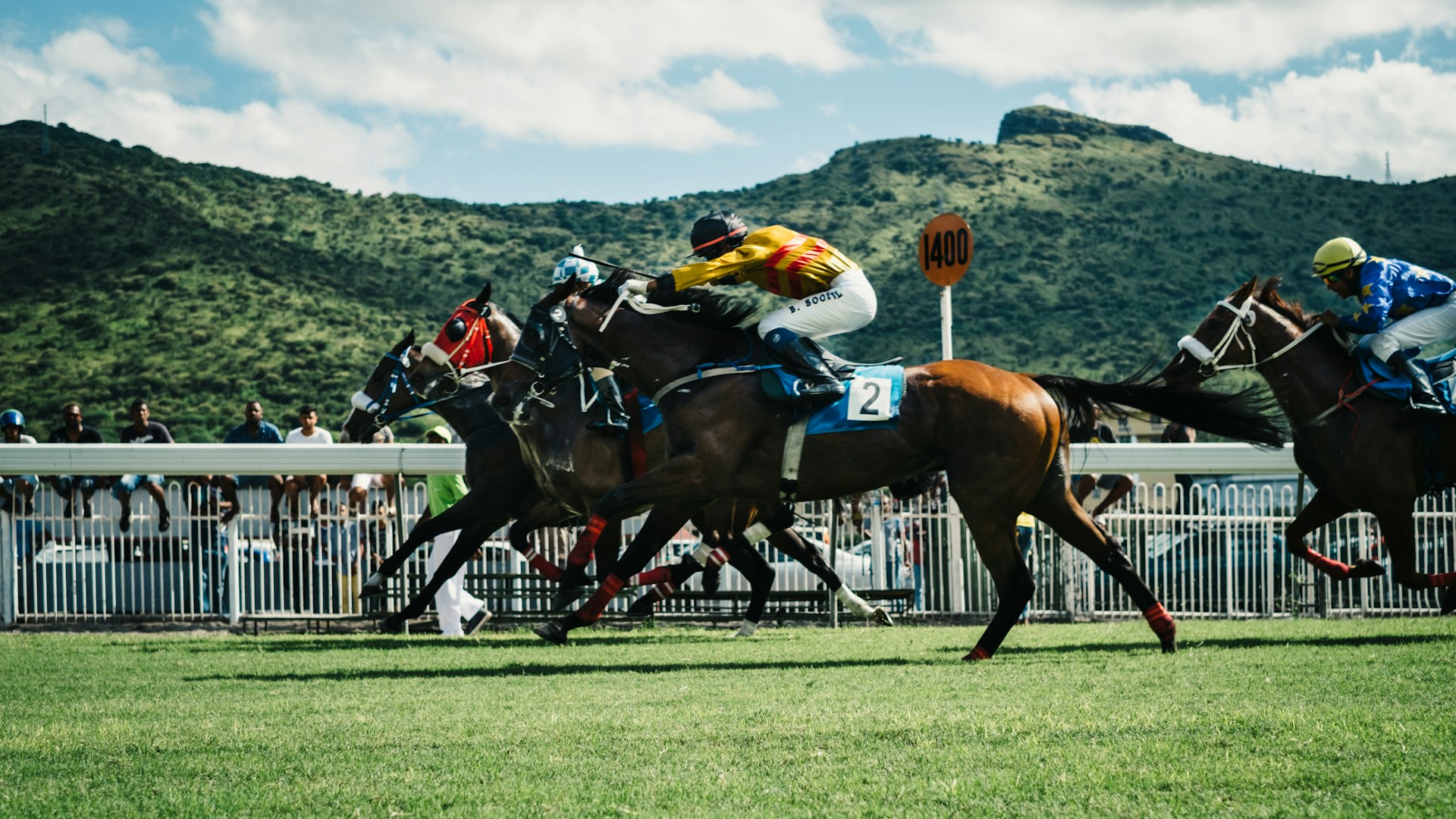Photo by Julia Joppien on Unsplash
Horse racing is one of the most followed sports in the world, with millions wagered on some of the biggest events on the calendar such as the Grand National and Kentucky Derby.
While the horses rightly get all the attention when it comes to assessing the leading stars in the sport, this could often see the job done by the jockey aboard overlooked when it comes to the work that they have done to gain success. In fact, for the vast majority of fans that don’t watch racing throughout the season, the jobs that jockeys do are greatly overlooked, with mainstream viewers typically believing that all the jockeys are doing is sitting on the horse.
However, that couldn’t be further from the truth, as jockeys are highly-trained professionals, and require a strict diet to ensure that they are able to operate at the highest level.
Making Weight Is Tough
Life as a jockey is no easy ride, as the athletes in competitions such as the Kentucky Derby odds, must be careful surrounding their diet and training to ensure that they make weigh to compete in races that they are set to take rides on.
For the most part, jockeys will need to be the same weight but this can be different depending on the experience level of the rider. For example, claimers can weigh lighter in order to level the playing field on course. A 7lb claim is allowed up to 20 wins, while 5lb claims and 3lb claims are available until the rider has reached 50 and 95 wins, respectively.
Maintaining the same weight can be very challenging for jockeys and it will typically mean that they won’t be able to have a big breakfast to fuel them for the day. Meanwhile, the vast majority of jockeys will only drink coffee in the morning to ensure that they aren’t carrying any more unnecessary weight before stepping on the scales.
Difference In Diet
There is a huge difference in diet when it comes to comparing what jockeys are allowed to eat compared to superstars in sports such as soccer and American Football. For example, athletes in the latter are able to eat foods that will enhance their strength and muscle capacity through high carbohydrates diets.
That isn’t the same when it comes to the diet that a jockey will need to maintain. Keeping the weight off is the name of the game in horse racing, meaning that a diet is typically less meaty. Meanwhile, many of the top jockeys reportedly carry around a sugar supply for the big race days on track, with sweets typically used to give the rider a quick energy boost when required for a huge race on track.
Fitness Tests
One of the biggest indicators that jockeys are athletes is the fact that they are required to pass a fitness test before competing on track, with a fitness test also being required before gaining a professional license.
The test is a gruelling affair for any athlete that hasn’t trained, as the examination includes a strenuous bleep test, as well as press up, leg raises, and event showcasing their balance on a mechanical horse. The requirement to pass this test is very high, and top marks aren’t given out easily by the moderator, as those not ready to ride horses at the top level could seriously jeopardize themselves, as well as other jockeys and the horses.
Jockeys must be physically fit, but also have a strong willpower to avoid eating fatty foods and drinking alcohol. The weight that must be carried is slightly different depending on whether you’re a jumps or flat jockey. Jumps riders are typically stronger, as they will need to have the power to get their runners over obstacles. Jumps jockeys will also boast more stamina, as typical races can last much longer over hurdles and fences than they would on the flat.
What Happens If A Jockey Is Under/Overweight?
Maintaining a healthy weight is key for the most successful jockeys in horse racing, as there are punishments for those that fail to achieve the optimal weight. Being underweight isn’t as big of an issue for a jockey, as special thin lead weights will be used in a special saddle cloth to make up the difference to ensure fairness.
Jockeys will be weighed out before taking to the track, and weighed once again in full gear when they return from the race. Jockeys are allowed to be up to one pound heavier after the race, but if they are over this limit, then their horse will be disqualified and the rider will be penalized. Jockeys can weigh up to three pounds more over the weight before the race, but they can’t be any more than four pounds. Should this be the case, then the announcement will be made before the race that one rider is carrying extra weight on their runner.
Jockeys manage mental health by prioritizing resilience, often seeking support through coaching and sports psychology. Their training routines are specialized, focusing on cardiovascular fitness, strength, and balance to handle the rigors of racing. Compared to athletes in other sports, jockeys may have longer careers, but they face unique challenges related to weight control and the physical demands of racing, which can affect longevity in the sport. For detailed insights into the life and training of jockeys, exploring sports and equestrian publications can provide comprehensive information.
Want to connect with jockeys? Connect with several pro equestrian athletes on MILLIONS.co like Sydney Collier, Zandra Birkeland, and Mavis Spencer.


Comment